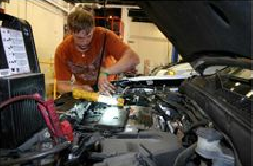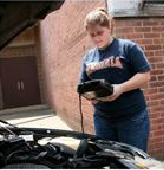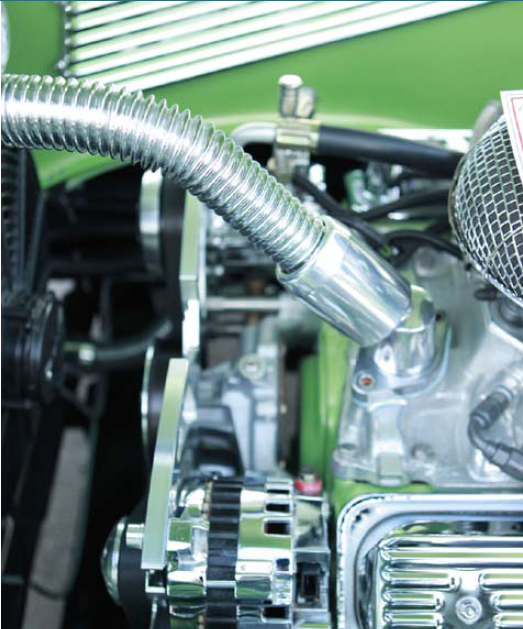-
Auto Body
Mr. Salem -- Auto Body InstructorThe Auto Body Collision Repair & Refinishing Technology program is designed to instruct students in the
development of eye-hand coordination skills and the operation of power and air operated equipment
associated with tools and procedures used in the repair of damaged automotive vehicles. Students who are
creative, meticulous, proud of their work and fascinated with automobiles will enjoy seeing their reflection
in the finish of a project. In the Auto Body Collision Repair & Refinishing Program students will learn to apply
various automotive finishes in the paint booth. They also learn the art of air brushing and customizing.
Students are taught cost estimating, frame straightening, Metal-Inert-Gas (MIG) welding, reshaping metal
parts and replacing body component parts. Instruction and "hands on" practice is available to the students
in the areas of: MIG welding, plasma cutting, automotive panel replacement, frame and unibody diagnosis,
measuring and repair, computerized estimating, automotive paint systems, overall paint and blending
procedures. Practice is also available in glass procedures with urethane, gasket sealed glass, fixed and
movable replacement procedures.
The Northern Westmoreland Career and Technology Center the Auto Body Collision Repair & Refinishing
program is primarily concerned with preparing students to enter the field of collision repair. Students
have the opportunity to learn automotive skills and knowledge, as well as reading, writing, language,
math and study skills needed for employment in the field. The students will have the ability to earn
multiple Industry Certifications that are available while in the program. The students will apply these
academic skills in conjunction with performing the hands on skills while working towards earning the
certifications. A few of the certifications include I-CAR, ASE, 3M, SP/2, and PPG. Qualified second year
students have the opportunity to earn a Certificate of Completion in refinishing systems from the PPG
Research Center. Senior students have the opportunity to receive a PPG Blue Level Industry Certification
after successfully completing a written and performance assessment.
Possible
Occupations:
· Auto Mechanics
· Service Managers
· Auto Technicians
· Transmission Technicians
· Parts Managers
· Insurance Adjusters
· Automotive Salespersons
· Warranty Clerks
· Warranty Clerks
· Independent Shop Owners
· Download BrochureAcademic
Requirements:
· Algebra I
· Algebra II
· Geometry
· College Prep English
· Science Curricular
Curricular
Components:
· Engine Repair
· Steering & Suspensions
· Brake Maintenance
· Computer Diagnostics
· Tune-Ups
· Fuel & Electrical Systems
· Drive-Train
· Engine Performance

Fact Check
· The ability to diagnose the source of a problem quickly and accurately requires good reasoning ability and a thorough knowledge of automobiles. Many technicians consider diagnosing hard-to-find troubles one of their most challenging and satisfying duties.
· For trainee automotive service technician jobs, employers look for people with strong communication and analytical skills. Technicians need good reading, mathematics, and computer skills to study technical manuals.
· ASE certification has become a standard credential for automotive service technicians. Certification is available in eight different areas of automotive service.
· The increasing use of advanced technology in automobiles will also lead to new opportunities for repair technicians, especially those with specialized skills or certifications.

